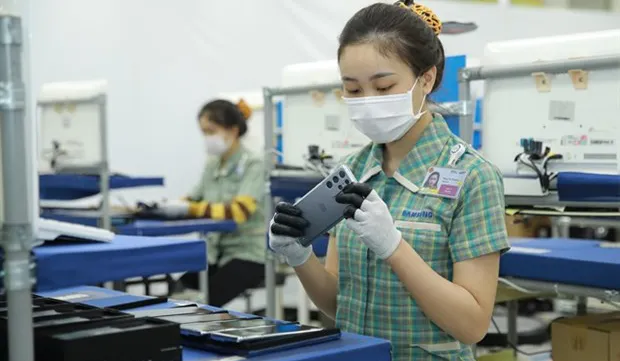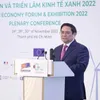Vietnam ready to become a semiconductor manufacturer

The global chip race is heating up, and Vietnam should be able to raise its position on the global semiconductor manufacturing map as some leading corporations are investing in chip production in the country, local economists said. Prof. Nguyen Mai, President of the Vietnam Association of Foreign Invested Enterprises ( VAFIE ), said the adverse impact of the COVID-19 pandemic and prolonged trade conflicts have caused a disruption of semiconductor supplies.
Global companies involved in using semiconductors to make smartphones, self-driving vehicles, artificial intelligence (AI) technology or data centers have been forced to cut their productivity.
Mai emphasied that countries are in a race to produce semiconductors and chips. In particular, the US Department of Commerce (DOC) in September released its strategy for implementing its 50 billion USD CHIPS for America programme. And China has doubled its spending and enacted policies to support semiconductor manufacturing companies.
Vietnam has also become a centre of the semiconductor industry as Samsung announced its plan to produce semiconductors from July next year with an additional investment of 920 million USD. The country is also home to Intel’s largest assembly and testing factory with an investment of 1.5 billion USD.
Do Nhat Hoang, head of the Ministry of Planning and Investment's Foreign Investment Agency, said the Synopsys company from the US also announced that it would train electrical engineers in Vietnam and support HCM City Hi-Tech Park (SHTP) to establish a chip design center through a software sponsorship programme.
Hoang added that in the first 10 months this year, FDI disbursement reached 17.45 billion USD, an increase of 15.2% over the same period in 2021. This was the highest number in the past five years. Of this figure, the manufacturing sector accounted for 65% and involved the major industries of hi-tech electronics and chip production. This has shown that Vietnam has gradually begun to form an ecosystem of semiconductor and chip production.
Over the years, Vietnam’s investment climate has been highly appreciated by foreign investors due to its stable political system and rapid growing economy. Incentives through corporate income taxes have also made an important contribution to creating an attractive investment climate.
Hong Sun, Vice President of the Korean Chamber of Commerce in Vietnam(KoCham), said that apart from having a stable business environment and many incentives, chip manufactures want to have abundant and stable power sources. Hong emphasied that chip or semiconductor manufacturing were both high-value products. If a sudden power failure occurred, production would have to restart from the beginning, which would take from a week to a few months and cost billions of dollars.
Mai said that “Vietnam should not rest on its gains and we need to make an assessment of the bottlenecks in luring FDI, such as transport infrastructure, and information networks.” He noted that if Vietnam can participate in the semiconductor industry, it will generate a big boost of added value for the country./.





